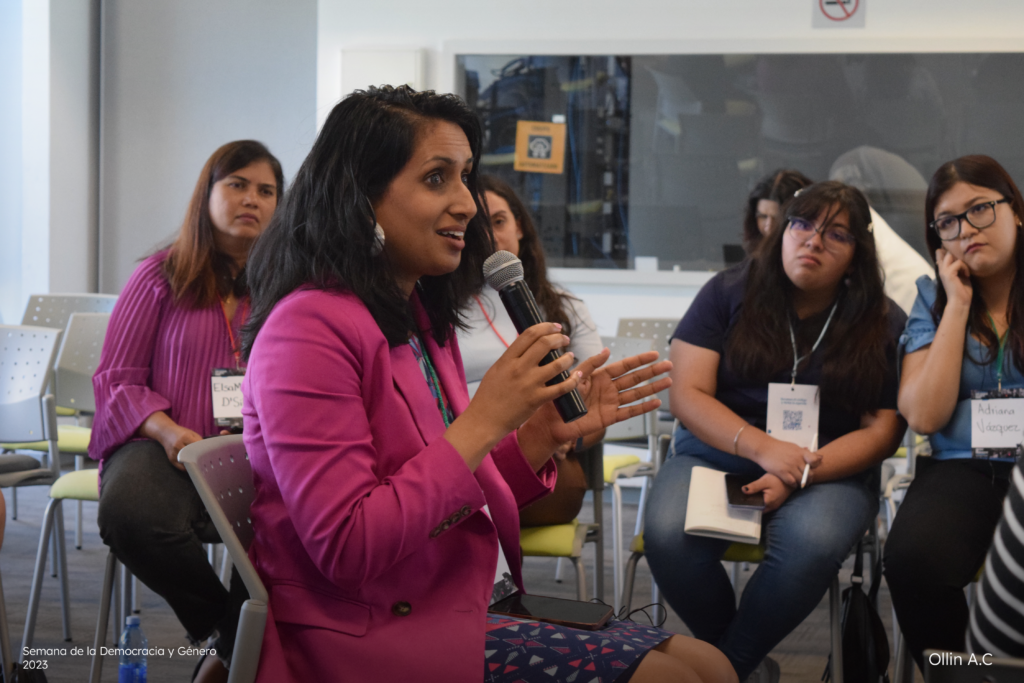Activities
Gender and Democracy Week 2023

Format
Topic
The advancement of gender equality in democracies is not only a matter of human rights and social justice, but also plays a crucial role in the achievement of a more inclusive, equitable and just society. Effective democratic systems are necessary tools to reflect the diverse needs and perspectives of all people. This is why the non-profit leaders Gabriela de la Torre and ElsaMarie DSilva joined forces and connected their two network initiatives – the Democracy Week and the Gender Alliance to initiate the Gender and Democracy Week.
The multifaceted and diverse five-day programe, that took place online and offline in Mexico City from 7–12 August 2023, focused on five key aspects, including the influence of women’s participation in decision-making-processes to achieve environmental sustainability and the role of female youth engagement in the shaping of democratic institutions and processes. Further, the dismantling of gender-based inequalities and the importance of a safe work environment as cornerstones for female opportunities in the private sector were discussed. The impact of feminism as a driving force for a more inclusive, equitable and just society, as well as the power of Artivism to enable worldwide dialogue and understanding rounded off the programme.
The in-person spotlight event in Mexico City brought together leaders from various networks – BMW Foundation, Bosch Alumni and the Global Diplomacy Lab brought the global perspective to local issues and vice versa with the help of diverse formats such as fishbowls, panels, trust circles and game play. Combining the two important themes of Gender and Democracy was essential in spotlighting important topics through an intersectional lens, like inclusion, urban living, violence against women, indigenous rights, climate change, youth leadership, technology and the role of the private sector.
The campaign’s global reach attracted participants from diverse time zones, highlighting the universal significance of gender equality within democratic frameworks. Its influence extended across 24 countries on all continents and encompassed a wide spectrum of sectors, from academia and civil society to the private sector and beyond.
Deep dive into the findings of the event here.